While cannabis stores in much of the country need to serve a broad customer base within a defined radius, retailers in mature, saturated markets like Los Angeles and Toronto are standing out by tailoring their spaces to the needs of specific consumer groups. Green Qween is one such store. Operated by and for the LGBTQ+ community, the dispensary is proving people will travel for an experience that aligns with their values.
Located in downtown Los Angeles near the uber-hip Ace Hotel, the 4,000-square-foot store attracts consumers from across the city and beyond, all motivated by the experience of buying cannabis in a space that feels authentically designed for them.
Founded by Andres Rigal and Taylor Bazley in 2022, Green Qween quickly became a nexus for queer cannabis culture in Southern California, thanks in no small part to the pair’s history as stalwarts within the community. Rigal is a well-known queer nightlife impresario and the creative director for the DTLA Proud festival. Bazley works in public policy and LGBTQ+ advocacy for the City of Los Angeles.
The pair’s talent for community organizing and navigating the city’s notoriously byzantine permitting process was pivotal in helping the dispensary open and thrive. When they began the process, dispensaries were not yet differentiating themselves by appealing to specific demographics. Bazley and Rigal felt the queer community—members of which consume cannabis at a higher rate than the national average and staunchly support queer-owned businesses—would be receptive to a retail concept that spoke directly to them.
“From a business perspective, we thought there was a real opportunity here,” said Bazley. “When you have 350 other dispensaries in this region that are differentiating a little around price or aesthetic but not really doing anything substantively different, we saw an opportunity to go in there and break the mold.”
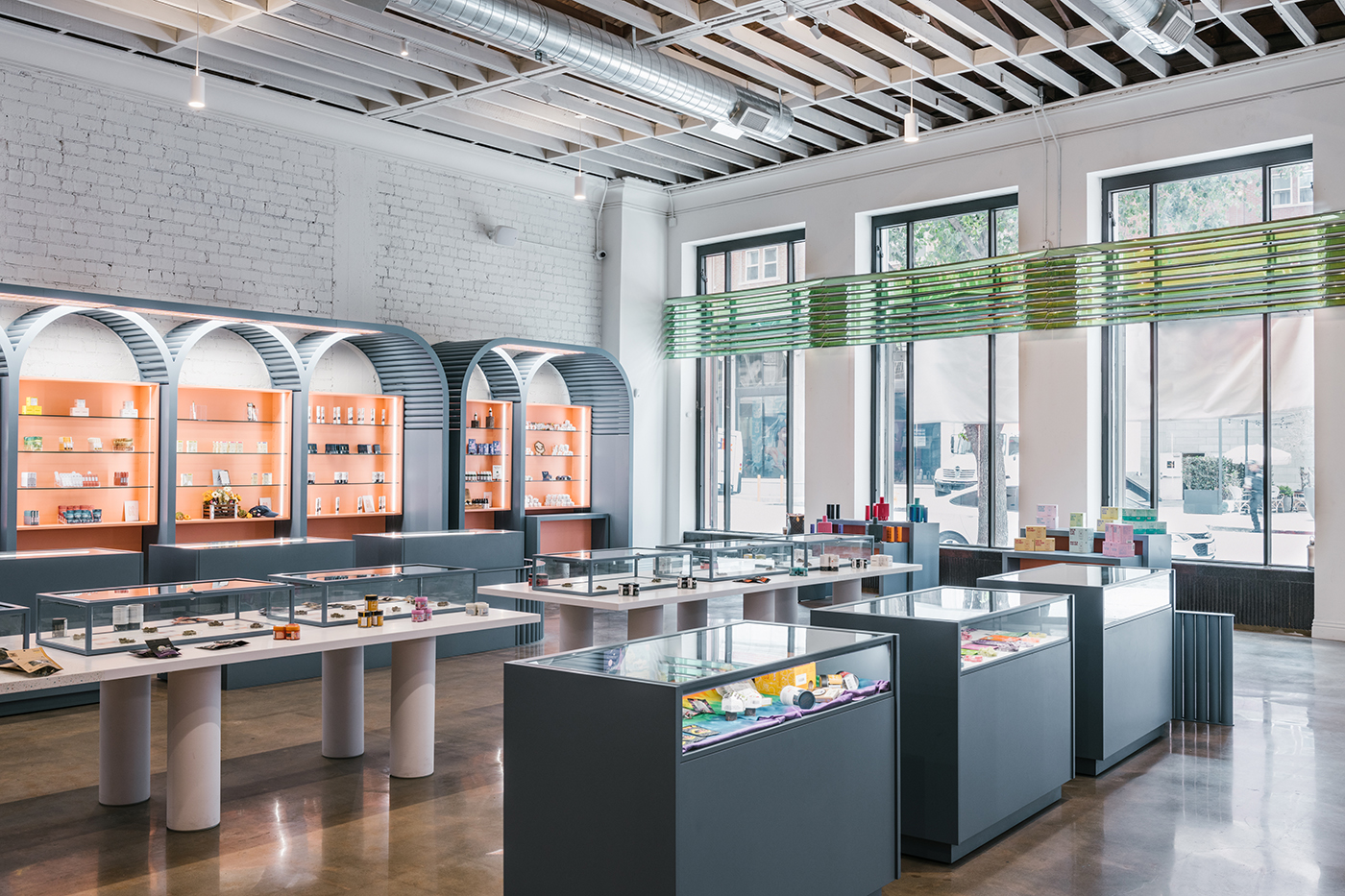
Housed in a 1930s Art Deco building that once was a bank, Green Qween’s façade has been lovingly restored to its original glory by peeling away generations of haphazard paint to reveal spectacular brass details. “There’s so much ornateness in this building,” said Rigal. “We’re really trying to lean into the aesthetic of it and bring back its splendor, because that had all been painted over when we moved in.”
His aesthetic vision is an austere marriage of Art Deco and the kitschy Memphis design style, which uses a jumble of primary colors and dynamic shapes to create an infectious postmodern motif that was ubiquitous in the late 1980s. The result is a fluid blend of subtle shapes and pastel tones that exudes class, confidence, and creativity. “I was really inspired by South Beach, Miami,” said Rigal, who settled on a gentle palette of apricot and tranquil blue tones throughout the space. “They are really playful with how they bring out their Deco moments with color.
“I wanted it to feel like you’re walking into the kind of place that inspires you and takes your breath away, like a museum,” he continued. “I still feel like every time I come in here I have to pinch myself.”
To realize their creative vision, Rigal and Bazley turned to Toronto-based retail fabricator SevenPoint Interiors. The firm worked with then to thread queer references throughout the store, like the façade’s sky-blue and pink tones—a nod to the trans flag—and the colored glass slats on the windows that illuminate the shop with a rainbow prism when daylight pours through them.
Together, Rigal and the firm developed a “serene, retrofuture aesthetic,” which is best encapsulated by a giant disco ball housed in a circular hole in the back wall. The ball is an icon of nightlife and altar for queer communities globally, and in Green Qween it spins slowly in the corner like a fabulous planet twinkling proudly on the edge of the solar system.
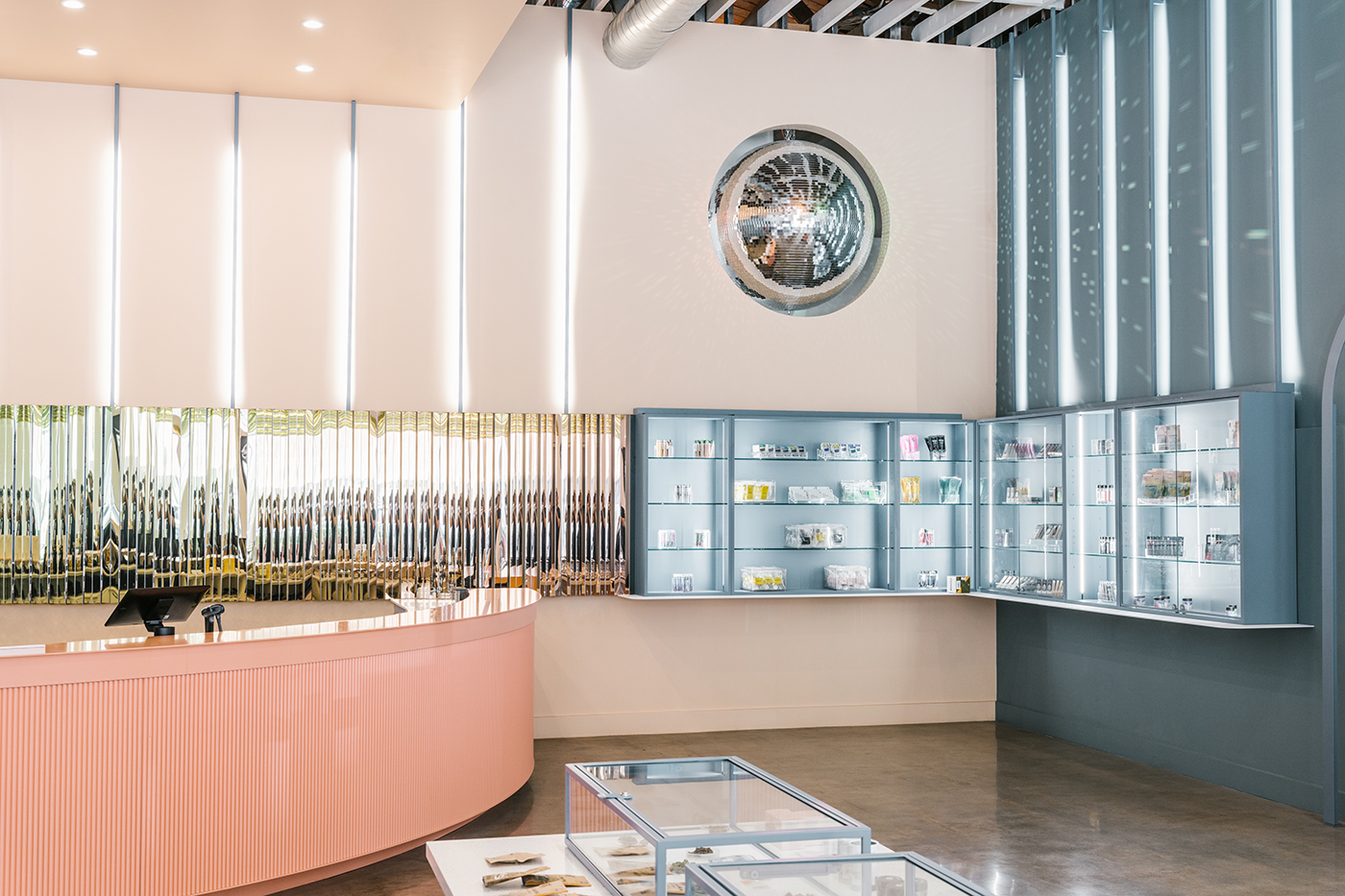
“The disco ball is the piece that holds the whole place together,” said Rigal. “It’s so big we had to take the doors off to get it in.”
Around the edge of the room, shelves tucked under powdery ash arches showcase products from a wide variety of edibles, wellness, and pre-roll brands. The tabletops in the middle of the shop floor stand on white cylindrical columns and present flower from companies including Stone Road (a top seller), A Golden State, and Ted’s Budz (whose ultra-saccharine mylar bags strut off the table).
Unlike some other high-design dispensaries, Green Qween doesn’t shun popular products because the packaging doesn’t fit the vibe. If a product is good, it’s for sale; if it’s queer-, woman-, or person-of-color-owned, it gets primo placement on the shelves.
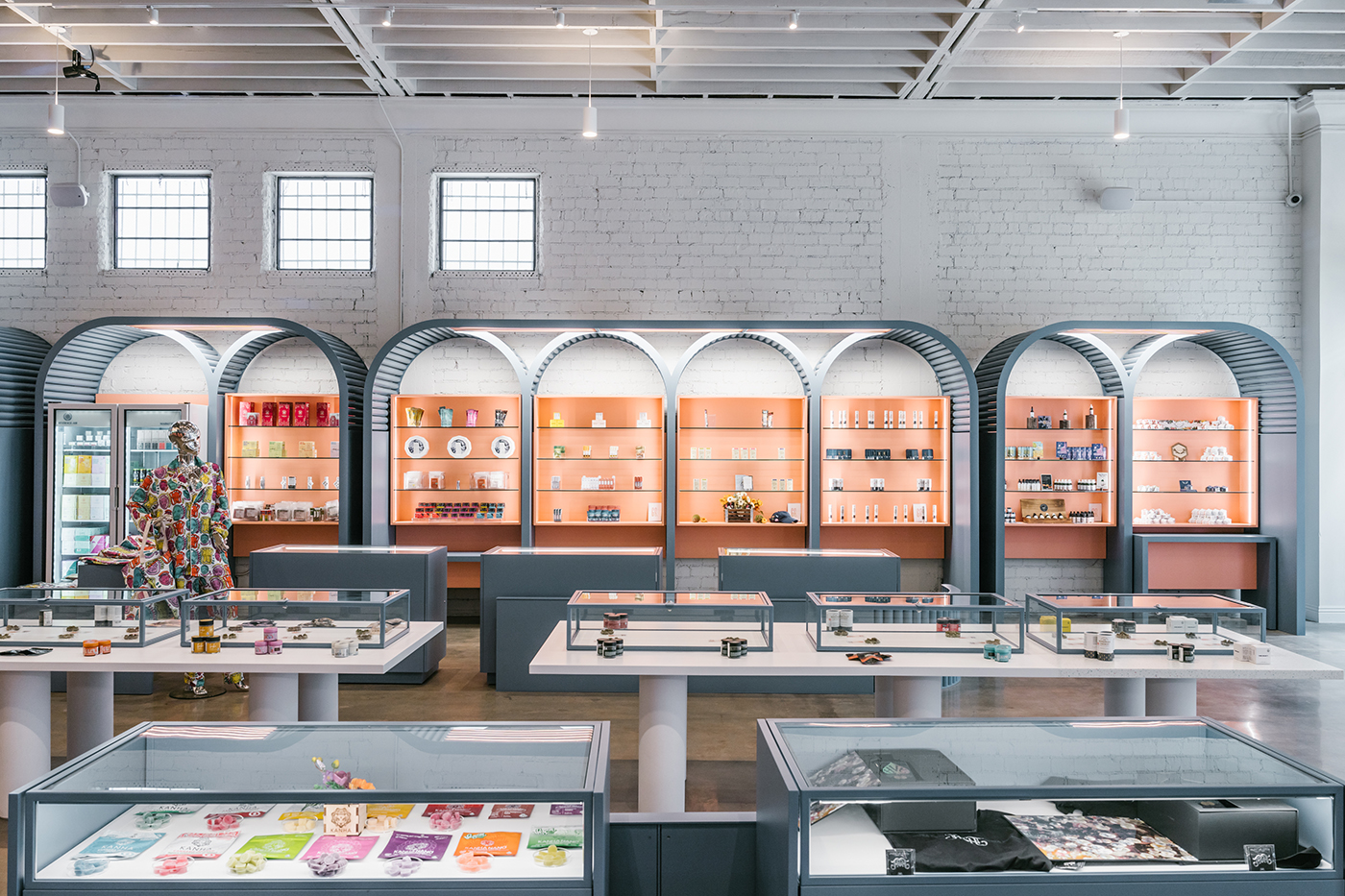
“We have all the big-name products most other dispensaries carry, but we also have a lot of products you can’t find in almost any other dispensary,” said Bazley, highlighting infused cracker brand Tempo as an example. “We want to experiment throughout the menu.
“Upstart LGBTQ and BIPOC entrepreneurs often don’t have the capital to be able to compete or pay hefty slotting fees,” he continued, using an acronym for Black, indigenous, and people of color. “These shelved areas are like a big Pride flag for LGBTQ consumers to discover these brands, and that will help them build up a customer base we hope they can leverage to get into more stores.”
However, the pair insists Green Qween is a marketplace first and foremost. If a product or brand doesn’t resonate with customers, a compelling founder story or charitable component won’t keep it on the shelves.
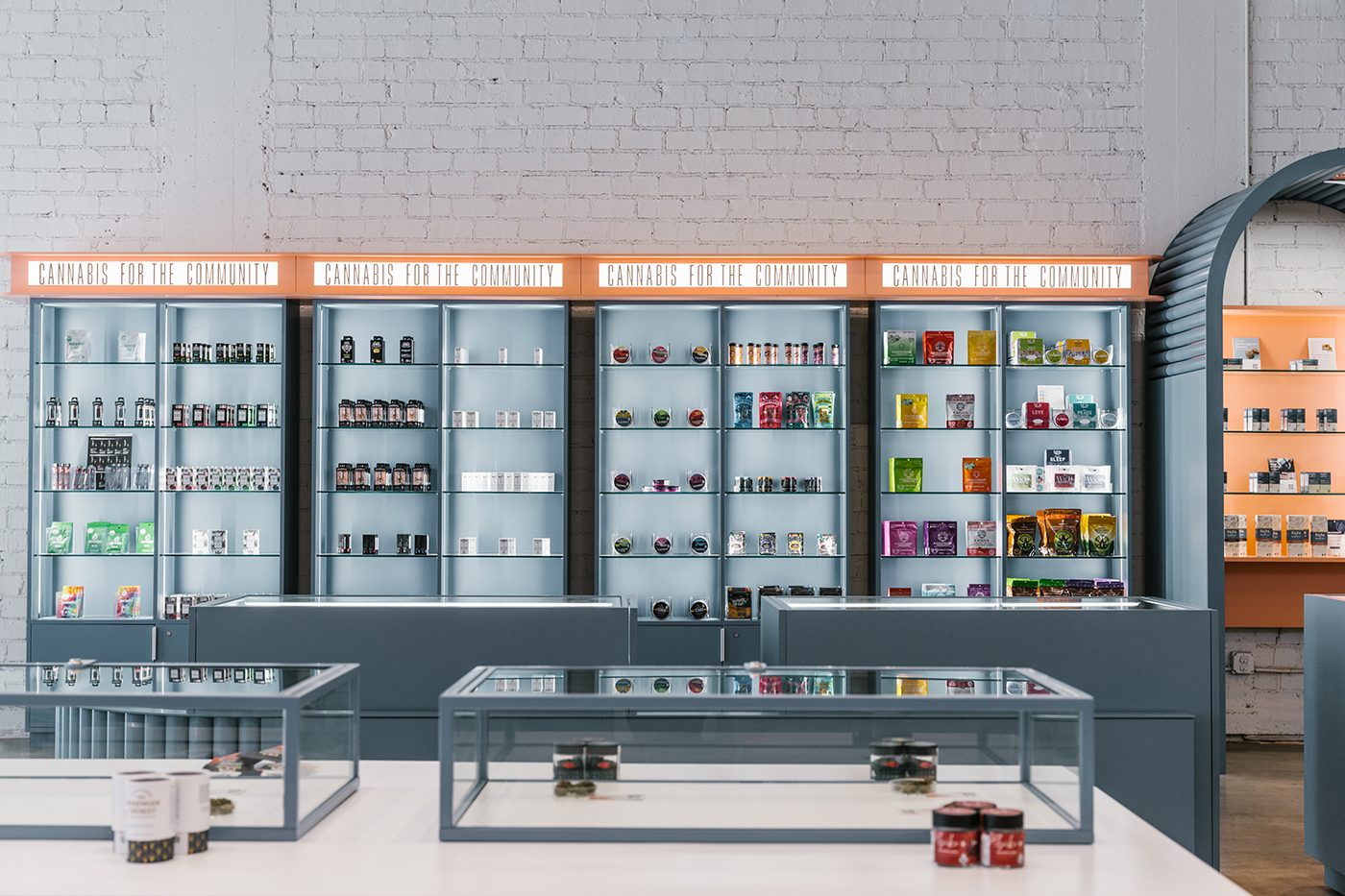
“We just want to highlight and give extra opportunities to these brands,” Bazley said. “If they can’t compete in the marketplace of ideas, maybe it’s because consumers don’t like them. And, well, that’s that. We’re not trying to prop up anyone.”
The founders’ initial thesis was that consumers inspired by the store’s mission would drive past other stores to shop at Green Qween, and that effect could help them differentiate beyond just pricing. “Our data shows we have a lot of folks who come from across town,” said Bazley. “We have a lot of customers who live in [downtown Los Angeles’s] historic core or the financial district and literally walk past MedMen to get to us. They do that because they recognize by shopping here, they’re shopping local and they’re supporting their own community.”
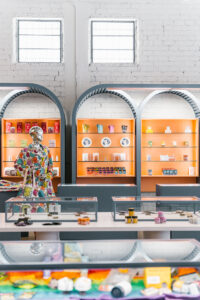
Bazley added, “The experience made us better and stronger, just like everything in this industry. We’re a very hardened target now” after extensive security upgrades.
“As we always say, blow as hard as you want. It’s wind in our sails,” Rigal said.
With the flagship Green Qween location a resounding success, growth beckons. The duo currently is looking at a pair of potential spaces in Mid City and the San Fernando Valley to expand their groundbreaking retail concept. In doing so, they are advocating not only for marginalized communities but also for the value of authenticity.
“We use every inch of our dispensary to represent queer people and marginalized communities,” said Rigal. “Whether it’s our shelf space, our mural, the marketplace, or the events we attach ourselves to, everything we do is very intentional.”







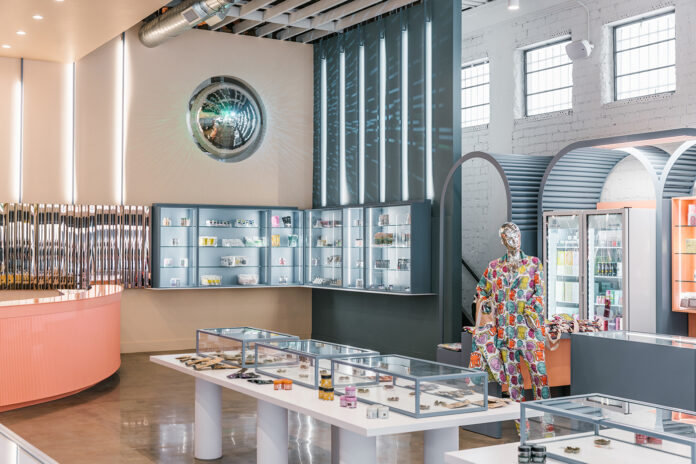





[…] you could host a monthly craft market like Green Qween in Los Angeles does, a lucha libre extravaganza presented by Luchador, or a classic car show coordinated by Hazy. […]